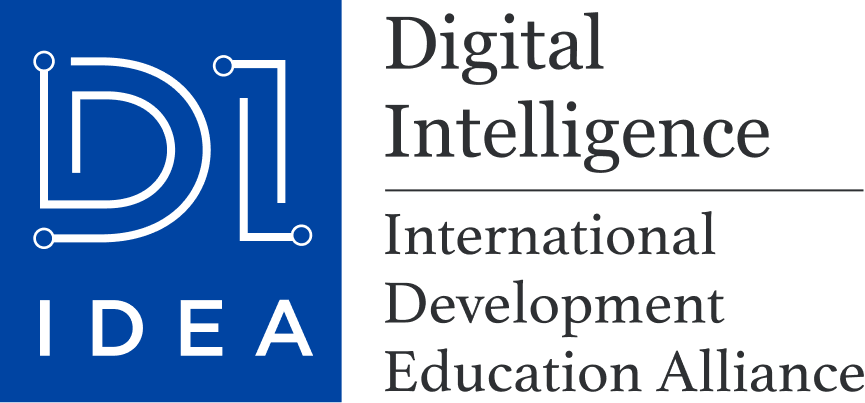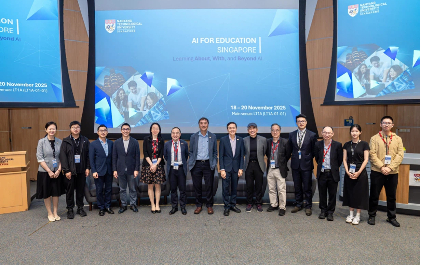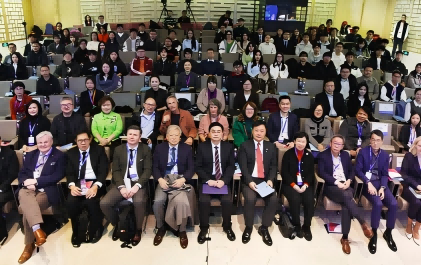2024/11/12 Source: Center for Excellent Teaching and Learning
Editor: Yan Yuan | Coordinator: Shanshi
On November 5, 2024, the International Digital Intelligence Educational Leadership Symposium was held at Peking University. In November 2023, the International Education Leadership Programme (IELP), initiated by King’s College London—a member of the Digital Intelligence International Development Education Alliance (DI-IDEA)—was officially launched, with the London School of Economics and Political Science (LSE), Monash University, and the University of Warwick joining the initiative. This one-year program selects 10–15 departmental or academic leaders from each member institution. IELP aims to explore how to cultivate globally minded educational leaders and drive high-quality development in higher education institutions during the digital and intelligent era.
During the 2024 Beijing Forum, the second phase of IELP (2024–2025 academic year) commenced, with Peking University invited to join. The program plans to involve other European universities in the future. The symposium, co-hosted by Peking University’s Center for Excellent Teaching and Learning and the respective educational development centers of King’s College London, LSE, and the London School of Hygiene & Tropical Medicine (LSHTM), served as a key component of the project. It delved into the theme “Exploring and Envisioning Emerging Challenges in Higher Education Over the Next Five Years,” focusing on the transformation and innovation of higher education in the age of artificial intelligence.
The hybrid event combined in-person and online participation. Fifteen attendees, including Dr. Claire Gordon (Head of Eden Centre for Education Enhancement, LSE), Prof. Samantha Smidt (Academic Director, King’s College London) and Dr. Rebecca Lindner (Deputy Director, King’ s College London), Prof. Simon Walker (University College London), Prof. Dragan Gašević (Director of the Centre for Learning Analytics, Monash University), and leaders and early-career scholars from seven Peking University schools, gathered onsite. Meanwhile, approximately 30 participants joined online.
The onsite session was chaired by Wang Shengqing, Managing Director of the Office of Educational Technology Development and Research at the Center for Excellent Teaching and Learning, Peking University and Secretary-General of DI-IDEA. The online segment was moderated by Alex Standen Pfhea, Head of Academic Development at the Eden Centre, LSE. Opening remarks included introductions to each institution’s profile and aspirations for the program by Wang Shengqing, Prof. Smidt, Dr. Lindner, Dr. Gordon, Dr. Pfhea, and Dr. Derfel Owen (LSHTM).
The symposium featured keynote speeches and panel discussions. Prof. Nick Michelsen from King’s College London’s School of Social Science and Public Policy analyzed strategies to increase student commitment through learning agreements and presented a skills framework designed to help students achieve academic excellence. He also addressed challenges related to insufficient student engagement and potential solutions.
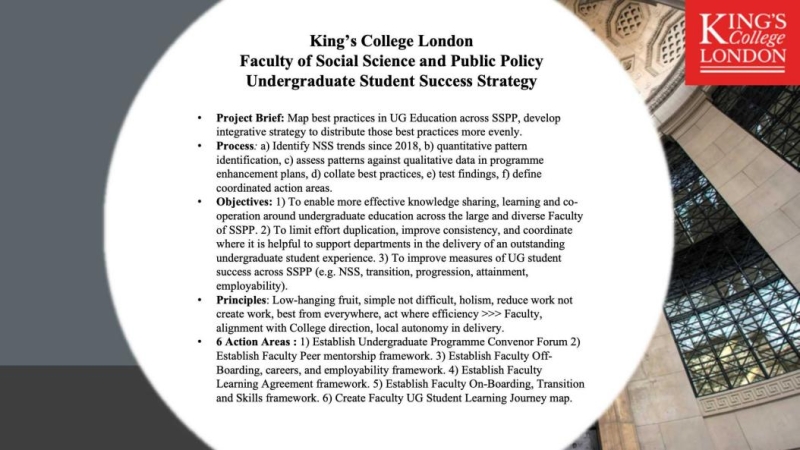
Keynote Presentation by Nick Michelsen
Peng Xin from Peking University School of Stomatology shared practical explorations into intelligent learning models in dental education, including virtual reality (VR) applications in anatomy teaching, virtual orthodontics course development, and the integration of digital teaching materials to improve students’ critical thinking and clinical skills.
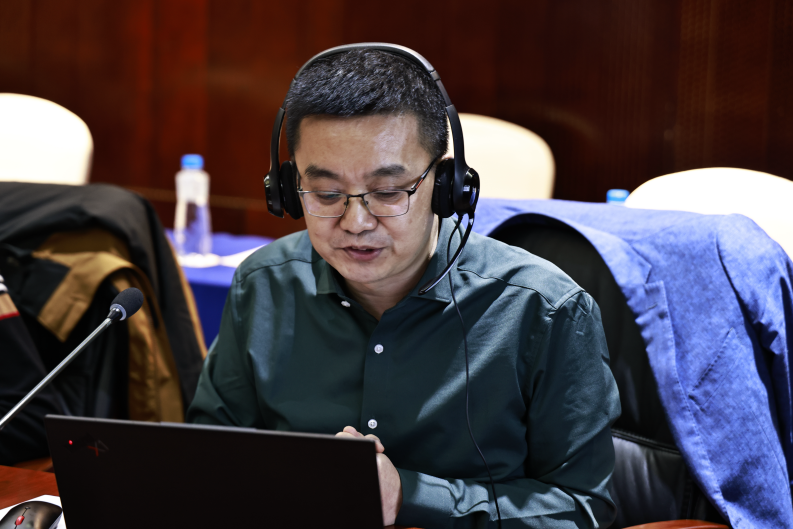
Keynote Presentation by Peng Xin
Associate Prof. Liang Xingkun from Peking University’s Department of Information Management discussed “AI Applications in Teaching and Learning,” examining AI’s impact on learning outcomes, strategies to cultivate AI literacy, and its potential benefits and challenges in education. He emphasized the need for clear guidelines and oversight in students’ use of AI.
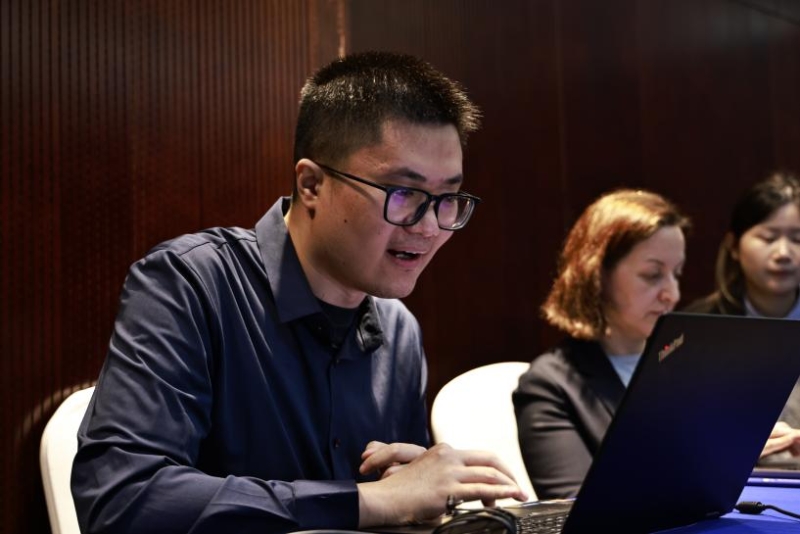
Keynote Presentation by Liang Xingkun
During panel discussions, participants identified keeping pace with technological advancements, particularly AI-driven shifts in pedagogy and policy—as a major challenge for higher education institutions over the next 5–10 years. Topics included building institutional and departmental frameworks for AI integration, preparing graduates to leverage AI in the workplace, enhancing student understanding of AI, and reimagining AI’s role in education and assessment. The session concluded with discussions on nurturing students’ capacity for world-class research in the AI era.
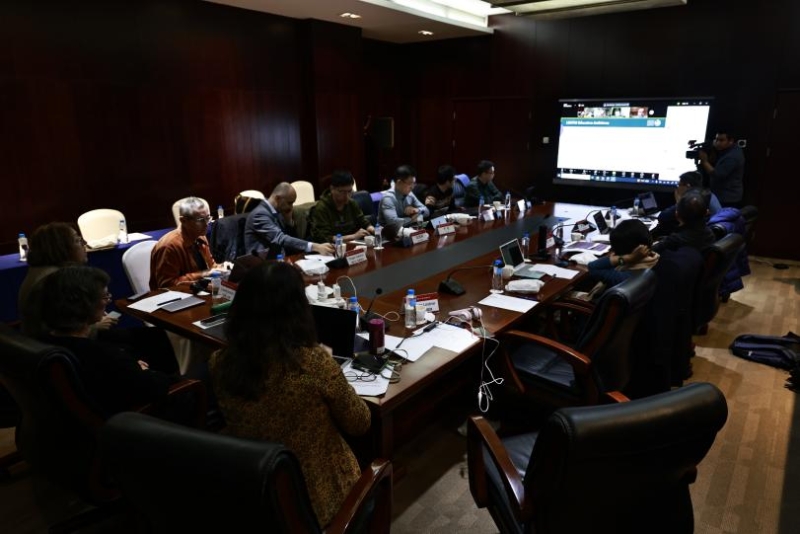
Participants Engaged in Panel Discussions
The symposium provided a platform for higher education leaders to analyze challenges and opportunities in the AI age. Under the framework of DI-IDEA, Peking University’s Center for Excellent Teaching and Learning will collaborate with global institutions to advance teaching innovations and cultivate future-ready talent.
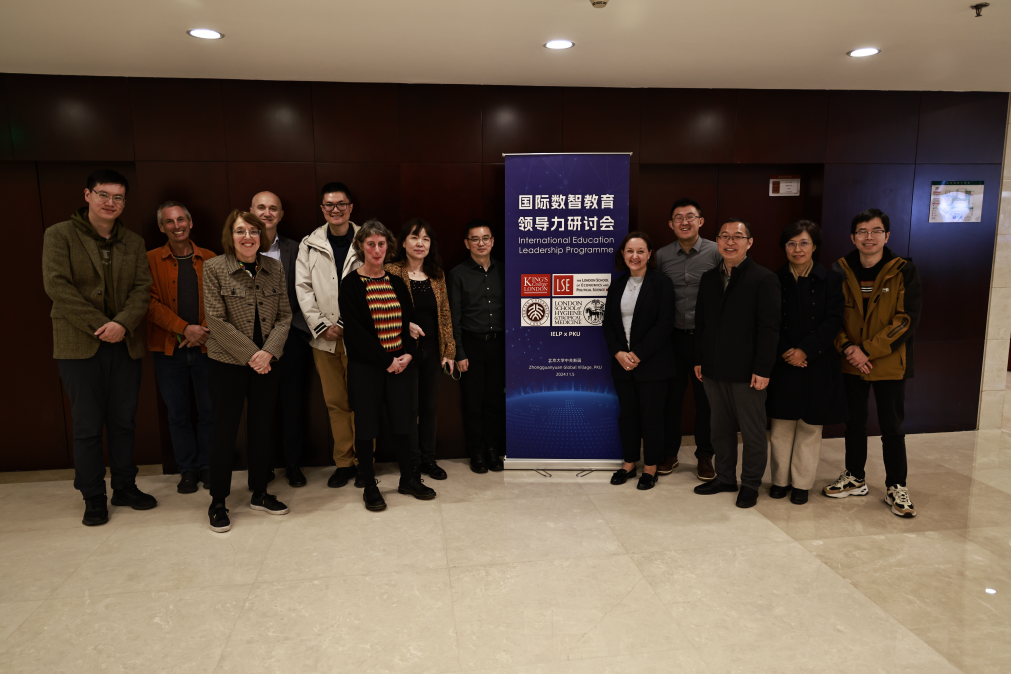
Group Photo of Symposium Participants
To address opportunities and challenges in the digital and intelligent era, Peking University co-founded DI-IDEA with 30 global institutions on November 3, 2023. The alliance aims to strengthen international collaboration, promote the global development of “digital education,” tackle societal challenges in the digital age, and enhance human well-being through shared responsibility.
